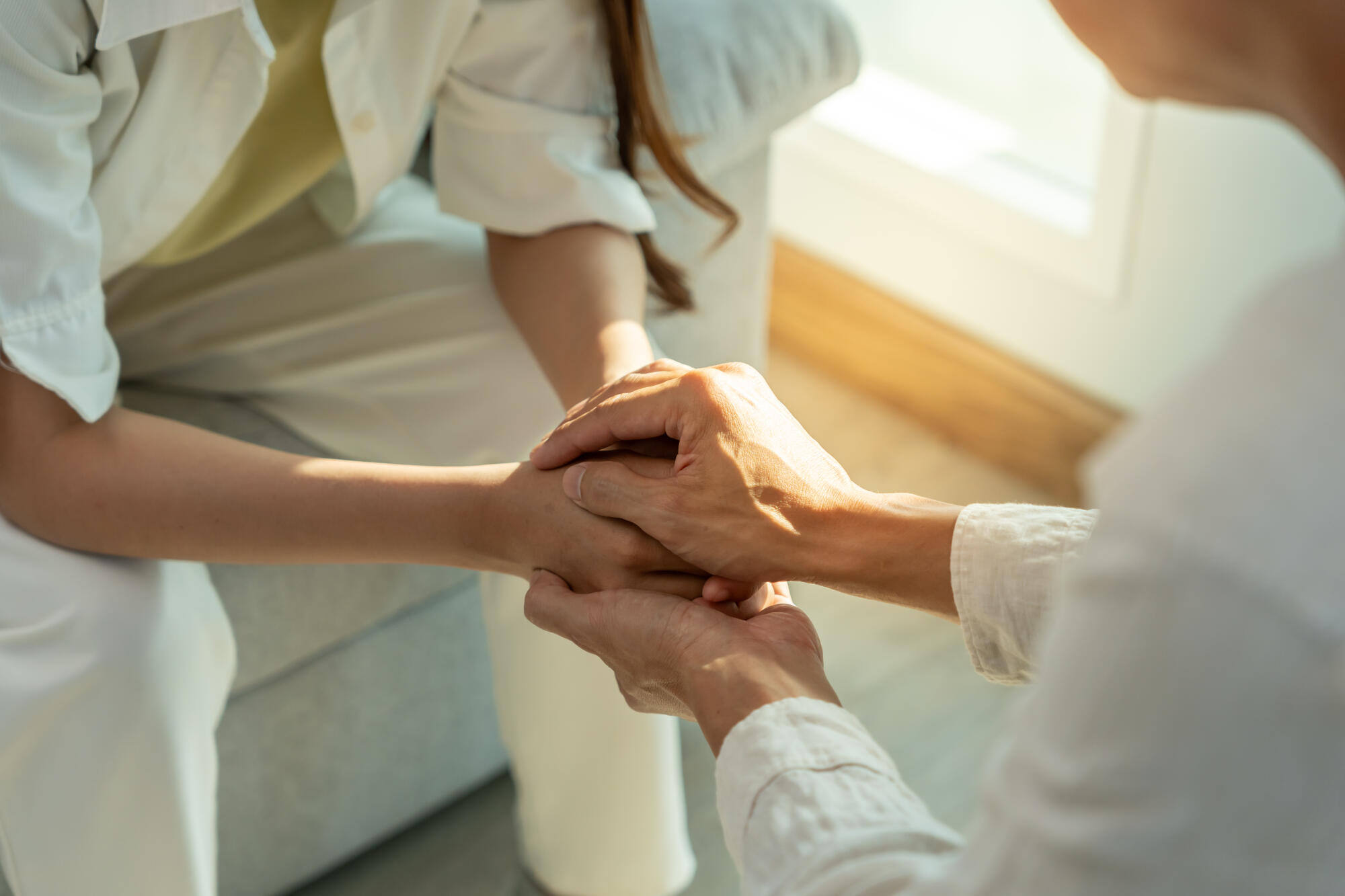Grief Support Groups: Finding Comfort and Connection for Seniors

When grieving a major loss, the process is different for everyone. According to the American Cancer Society, grieving can take anywhere from days to years. Grief is a complex emotion that is often misunderstood.
As we learn more about grief, humans have become better educated on how to get through the grieving period. Grief support groups can be very helpful in navigating the mourning process.
So, what are grief support groups, and how can they aid in coping with grief? Here is an explanation of emotional healing communities and how they support seniors.
What are Grief Support Groups?
Grief support groups are spaces where mourners can discuss their feelings about grief with others who are going through the same experience.
Types of Grief Support Groups
Group therapy for seniors comes in many different forms. The type of group you pick can depend on many factors, such as cost and location.
In-Person
If you need an in-person connection, you may benefit from physically going to a grief support group. Sometimes when you can feel the presence of others, it makes it easier to work through your own feelings.
When you physically sit in a room with someone, it is also easier to read their body language and emotions.
An in-person grief support group can also facilitate meeting up outside of the group. Build your own elder support networks with people you encounter in your group therapy for seniors.
Online
Sometimes it can be difficult for seniors to attend an in-person grief support group. Seniors often don't drive, or they're more isolated in their homes or living communities.
This is where online support groups play a vital role. You can tune in from anywhere in the world and meet with others to begin your emotional healing.
When you search for groups online, you can cast the net a lot wider. For instance, you may be able to find a grief support group for your specific situation. Losing a spouse is far different from losing a pet or a child.
Being online gives you more flexibility as well. You may feel emotionally vulnerable. In that case, you can simply turn your camera off or just listen to others free of judgment.
Benefits of Grief Support Groups
There are many reasons why grief support groups are popular. Here are just a few of the benefits that you can reap from attending elder support networks.
Emotional Support
Emotional health is just as important as physical health. When you're grieving, your body goes through many different states, from shock to malaise. It's important to ensure your emotions are taken care of as much as possible.
In a grief support group, you have space to fully express your emotions. You can cry or be angry without fear or judgment from others.
Receive Practical Advice
Sometimes it can be difficult to get through the day when you mourn the loss of a loved one. Your fellow support group members may be further along in their journey. As such, they can offer you more practical advice.
Unfortunately, the world doesn't stop just because you lost someone. Getting advice from others on how to carry on with your day-to-day activities, such as your job or taking care of kids, is important.
Save Money
Although it shouldn't be, getting one-on-one help in your grieving journey can be expensive. Hiring an individual therapist may not work out for you if you're financially stretched, especially if you lost a spouse who helps provide income.
Group therapy for seniors is more cost-effective than individual therapy. Members typically pay much less per session. The tradeoff is that you won't get as much individual attention, but you can still benefit immensely.
Make Lifelong Friends
Grief can be an isolating experience, especially if no one in your life knew the person as you did. However, a grief support group brings people into your orbit who are going through similar experiences.
Even if you have moved on from actively grieving, the friendships you make in group therapy can always be valuable. Friendships that form during a difficult period are often deeper and can stand the test of time.
Have Something to Look Forward To
When you are deep in the fog of grief, it is difficult to look forward to anything. The days drag on, and you may not feel motivated to do things that aren't essential.
Attending a support group is a way to get out of the house. You might even look forward to it once you begin to discover the benefits.
Reminisce About Loved Ones
Therapy groups aren't just for sharing your negative emotions. Healing often comes from expressing fond memories and feelings associated with your loved one.
Sharing happy memories can bring light to a very dark time. It can also show newer members of the group that there is hope at the end of the journey.
Learn Coping Skills
Even in a group setting, you can learn valuable coping skills to help you outside of your grief support group. These skills allow you to deal with big feelings without the cover of the group.
For example, you may encounter sudden waves of sadness when you are home alone. You can pull from what you learn in your therapy group to get yourself back on track.
One of the most common coping techniques is grounding, where you stand barefoot with your feet directly touching the earth. You can also try mindfulness or simply focusing on your breathing.
Consider Senior Bereavement Groups
Although grief support groups are beneficial for any stage of life, they are especially important for seniors. Elder support groups can provide immense relief for those who are grieving a significant loss.
One of the best ways to heal from grief is by finding community. At Addington Place of Shiloh, you can do just that. Our apartments can accommodate a variety of needs, and we have attentive and caring staff who are ready to assist you.
Are you ready to begin your journey into paradise? Reach out to us today to learn more, or schedule a tour of our vibrant senior living community in Shiloh, IL.
